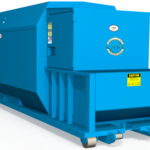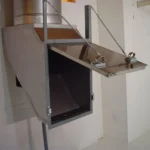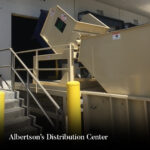Hospitals generate large volumes of waste every day—from medical packaging, paper, food service, linens, to regulated medical waste. Efficient waste management isn’t just an operational concern; it’s a patient safety, regulatory compliance, and cost control matter. For hospitals in Clackamas, Oregon, installing waste compactors for hospitals Clackamas Oregon can deliver major benefits. In this article, we examine how hospitals can gain through installing waste compactors, and how CARE can be your trusted partner in this process.
Why Clackamas Hospitals Need Robust Waste Management
- Hospitals produce diverse types of waste: general trash, compostable waste, recyclable materials, shredded documents, and sometimes hazardous/medical waste (which must be handled per regulations).
- Inefficient waste handling leads to high disposal costs, frequent pickups, possible regulatory fines, and issues of odor, pests, or infection control.
- Space in hospitals is always at a premium. Storage for waste bags or bins that are bulky or loosely packed causes inefficiencies and can interfere with patient flow or safety zones.
What CARE Offers: Reliability, Experience, and Full Support
CARE has served the Pacific Northwest since 1977. They specialize in:
- A wide range of waste compactors, balers, chutes, and custom recycling equipment
- Sales, rentals, installations and equipment removals
- 24/7 maintenance and repair services
- Training programs to ensure safe operation
- Flexible financing options
With CARE, hospitals in Clackamas can get professional, durable, compliant solutions for waste compactors.
Key Benefits of Installing Waste Compactors for Hospitals
Here are the top benefits hospitals in Clackamas will experience by installing waste compactors for hospitals Clackamas Oregon:
1. Reduced Waste Volume & Lower Disposal Costs
- Compactors compress trash to much smaller size, meaning fewer waste pickups and hauling trips.
- Lower transportation fees, fewer labor hours spent moving bins or bags.
- Because compaction reduces how much space the waste occupies, you may avoid costly waste overage fees.
2. Improved Hygiene, Odor Control, and Infection Prevention
- Compacted waste has less exposure to air and moisture, reducing odor and pest attraction.
- Hospitals must maintain strict cleanliness standards; compactors enclosed systems help contain mess, leaks, or cross-contamination.
- Less loose waste means fewer handling points and fewer opportunities for infection vectors.
3. Better Use of Space and Workflow Efficiency
- Compacting frees up storage room. Instead of large piles of roll-out bins or overflowing trash rooms, compactors consolidate waste into smaller, manageable units.
- That means corridors, loading docks, and service areas are less cluttered—making staff movement safer and quicker.
- With a well-installed system, hospitals can integrate compactors with chutes, conveyors, or routing systems to streamline waste removal.
4. Regulatory Compliance & Environmental Responsibility
- Hospitals are under strict rules for waste handling. Proper compaction helps maintain compliance with local health codes, OSHA, and environmental regulations.
- Compacting reduces the carbon footprint of waste transport (fewer trips, lower emissions).
- CARE’s equipment offerings—such as recycling systems, balers, and specialized compactors—help hospitals implement sustainable waste practices.
5. Cost Predictability & ROI
- Investing in a quality compactor from CARE means upfront cost is higher, but long-term savings can be significant.
- Fewer pickups, less labor, less space needed—all translate to predictable savings.
- CARE offers flexible financing options so hospitals can choose plans that suit budgets and cash flow.
6. Reliability, Maintenance & Support
- CARE provides 24/7 onsite repair services. If a compactor fails, they have trained technicians available.
- Preventive maintenance programs reduce unexpected breakdowns. Hospitals cannot afford waste management disruptions.
- Training ensures that hospital staff know how to safely load compactors, use safety features, and perform basic upkeep. This extends the lifespan of the equipment and ensures safe usage.
Considerations When Choosing Waste Compactors for Hospitals in Clackamas
To ensure you get full benefit, these factors matter:
What to Evaluate
- Type of compactor: stationary vs self-contained, front-load vs roll-off
- Capacity and size: based on amount of waste generated daily, space constraints
- Power / utility requirements and ventilation
- Noise and safety features: Hospitals need quieter, controlled equipment with safety interlocks
- Service and parts availability: look for providers who can support 24/7
- Financing: whether purchase or rental works better for your budget
Real-World Impact in Hospital Settings
Hospitals that use waste compactors often see:
- Up to 50-70% reduction in waste volume for general trash and recyclables
- Lower operational costs in waste management by 20-40%, depending on scale
- Cleaner, safer waste handling areas, which supports infection control protocols
- Improved compliance with environmental and health safety regulations
Why CARE Is the Right Partner for Clackamas Hospitals
CARE isn’t just a manufacturer or vendor; their full suite of services makes them an ideal partner:
- Deep experience since 1977 in designing, installing, and supporting waste handling systems
- Ability to provide custom solutions (e.g., recycling systems, chutes, balers) so the hospital gets equipment tailored to its unique needs
- Support services: training, preventive maintenance, repairs, and inspections—all critical for continuous operation
- Flexible financing and rental options to reduce upfront investment strain
Implementation Steps for Hospitals in Clackamas
- Assessment: Evaluate current waste streams, volumes, space constraints, regulatory requirements
- Consultation with CARE: Engage CARE to review options, select proper compactor type and size
- Installation & Training: CARE handles full installation, setup, and staff training to ensure safe efficient operation
- Maintenance Plan: Set up preventive maintenance schedule + regular inspections
- Monitor & Optimize: Track metrics—waste volume, pickup frequency, cost savings—and adjust as needed
Conclusion
For hospitals in Clackamas, Oregon, installing waste compactors for hospitals Clackamas Oregon isn’t just an operational upgrade—it’s a strategic investment. The benefits are extensive: from cost savings, regulatory compliance, hygiene and infection control, to environmental stewardship and workflow efficiency.
If you’re looking to improve your hospital’s waste management, reduce costs, and promote a safer, cleaner environment, CARE offers the expertise, equipment, and support to make this happen.
Call to Action:
Contact CARE today for a free consultation to assess the best waste compactor solution for your hospital. Visit our website to explore products, financing options, and maintenance plans. Let us help you optimize your waste management and elevate your facility’s operations.

















